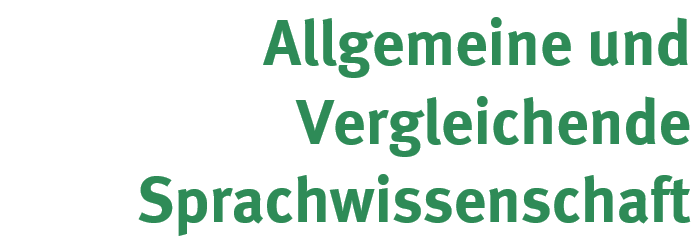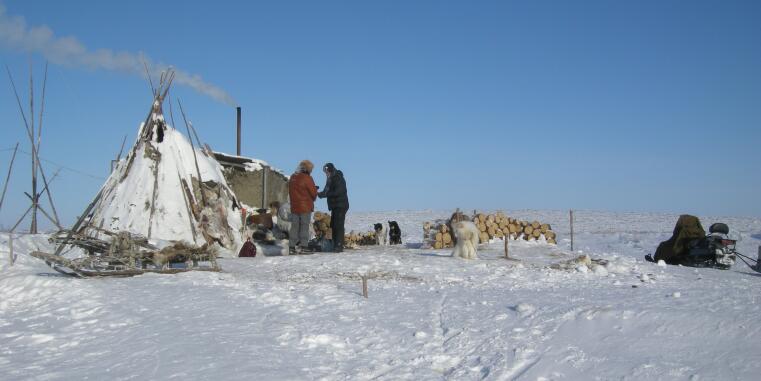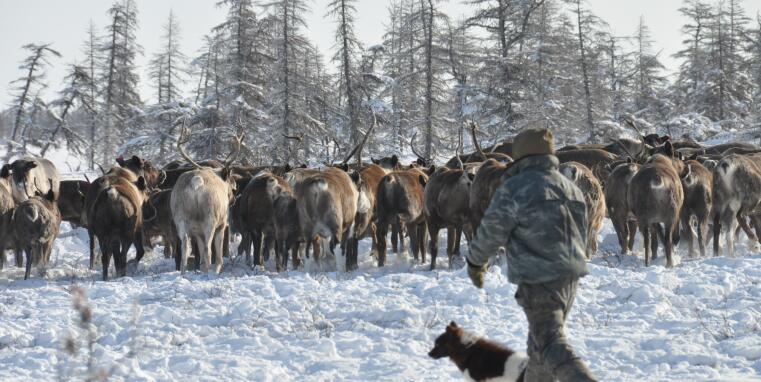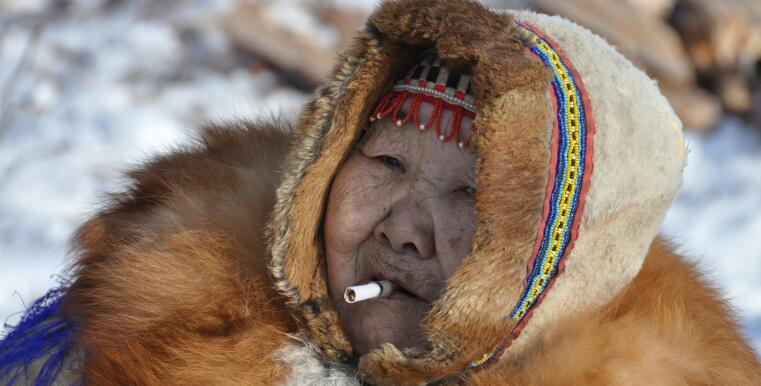The area of north-eastern Siberia comprises a vast swathe of land stretching between the River Lena and the Pacific Ocean along the west-east axis, and the Arctic Ocean in the north and the River Aldan in the south. Before the advent of the tsarist colonizers in the 17th century, this region was populated by small hunter-gatherer and/or pastoralist groups speaking Yukaghir, Tungusic, Chukotko-Kamchatkan, Eskimo-Aleut, and, somewhat more recently, Turkic languages. The arrival of the Russians has radically changed this landscape and introduced new dynamics in the ethnic and linguistic relationships between different populations. Some groups were fully or partly exterminated by the waves of smallpox epidemics in the 18th and 19th centuries (many Yukaghir and some Even groups), some were forced to move to the more inaccessible regions, mostly to the north (central Evens and Yakuts), while some profited from the new situation and spread beyond their original habitats (Yakuts, Chukchi). As a consequence of population movements, linguistic contacts intensified, resulting in wide-spread multilingualism across the whole of the area. There are well-documented examples of the entire clans switching to another language, as in the case of western Yukaghir groups that switched to Even or Yakut, and of deep structural interference between languages, as in the Yakut influence on Lamunkhin and Bulun Even. New mixed linguistic varieties have emerged, such as Dolgan with its Turkic and Tungusic ancestry.
The workshop ‘Language and Culture Contact in North-Eastern Siberia’ deals with the structural and socio-cultural aspects of multilingualism and cultural intermingling. There are two areal foci, the Lower Kolyma Tundra as a locus of intense linguistic contact between the Yukaghirs, the Evens, the Yakuts and the Chukchi, and the Chukotka Peninsula, with its mixture of Chukotko-Kamchatkan, Eskimo-Aleut, and to a lesser extent, Yukaghir and Even groups. In addition, some of the contributions touch upon other areas, such as the Anabar region in the west and Kamchatka in the east, while others take a more holistic perspective and deal with north-eastern Siberia as a whole. Thematically, the conception of the workshop is broad so as to cover the structural consequences of linguistic mixture, the reconstruction of historical scenarios of ethnic and linguistic contacts, genetic and anthropological evidence for population movements, as well as the phenomena of linguistic attrition and language death.
Day 1 - Friday, 14.10.2022
| Time | Abstracts | |
|---|---|---|
| 10:00 - 10:20 | Welcome (organizers) | |
| 10:20 - 11:00 |
Dejan Matić & Irina Nikolaeva |
Contact-induced changes in Tundra Yukaghir and Lower Kolyma Even |
| 11:00 - 11:10 | Discussion | |
| 11:10 -11:30 |
Coffee break |
|
| 11:30 - 12:10 |
Daria Mordashova, Maria Pupynina, & Natalia Aralova |
Associated motion in the Lower Kolyma area: Even, Chukchi and Tundra Yukaghir |
| 12:10 - 12:20 | Discussion | |
| 12:20 - 12:40 |
Maria Pupynina & Nikolai Vakhtin |
Yukaghir Language Competence in a Multilingual Environment: a Longitudinal Research |
| 12:40 - 12:50 | Discussion | |
| 13:00 - 14:30 |
Lunch break |
|
| 14:30 - 15:10 |
Jessica Kantarovich |
Before language shift: Reconstructing and interpreting morphosyntactic variation in Chukchi |
| 15:10 - 15:20 | Discussion | |
| 15:20 - 16:00 |
Evgeniy Golovko |
|
| 16:00 - 16:10 | Discussion | |
| 16:10 - 16:30 |
Coffee break |
|
| 16:30 - 17:10 |
Anastasia Panova |
The Chukchi influence on Chaplinski Yupik: a case study of personal names |
| 17:10 - 17:20 | Discussion | |
| 17:20 - 18:00 |
Lenore Grenoble |
The dynamics of multilingualism in an Arctic language ecology: The Anabar District |
| 18:00 - 18:10 | Discussion | |
| 19:30 | Workshop dinner |
Day 2 - Saturday, 15.10.2022
| Time | Abstracts | |
|---|---|---|
| 10:00 - 10:40 |
Brigitte Pakendorf |
Population history and contact in northeastern Siberia: molecular anthropological perspectives |
| 10:40 - 10:50 | Discussion | |
| 10:50 - 11:30 |
Alexandra Lavrillier |
Anthropological Hypotheses about the correlations between Reindeer herding and hunting Even and Evenki Economics and their Kinship Terminologies |
| 11:30 - 11:40 | Discussion | |
| 11:40 - 12:00 |
Coffee break |
|
| 12:00 - 12:40 |
Alexey Vinyar, Tatiana Kazakova, Alexandra Nogina, Alexey Baklanov, Daria Ignatenko, |
Morphosyntactic complexities in (North-Eastern) Siberia: evidence for contact-induced convergence? |
| 12:40 - 12:50 | Discussion | |
| 12:50 - 13:00 |
General discussion and closing |






